Why is Western Nghe An still poor?
(Baonghean.vn) - This is the content that many delegates were interested in and raised questions about at the question-and-answer session on the implementation of ethnic work and ethnic policies in Nghe An province at the 8th session of the 17th Provincial People's Council on the afternoon of December 11.
Why is the West still poor?
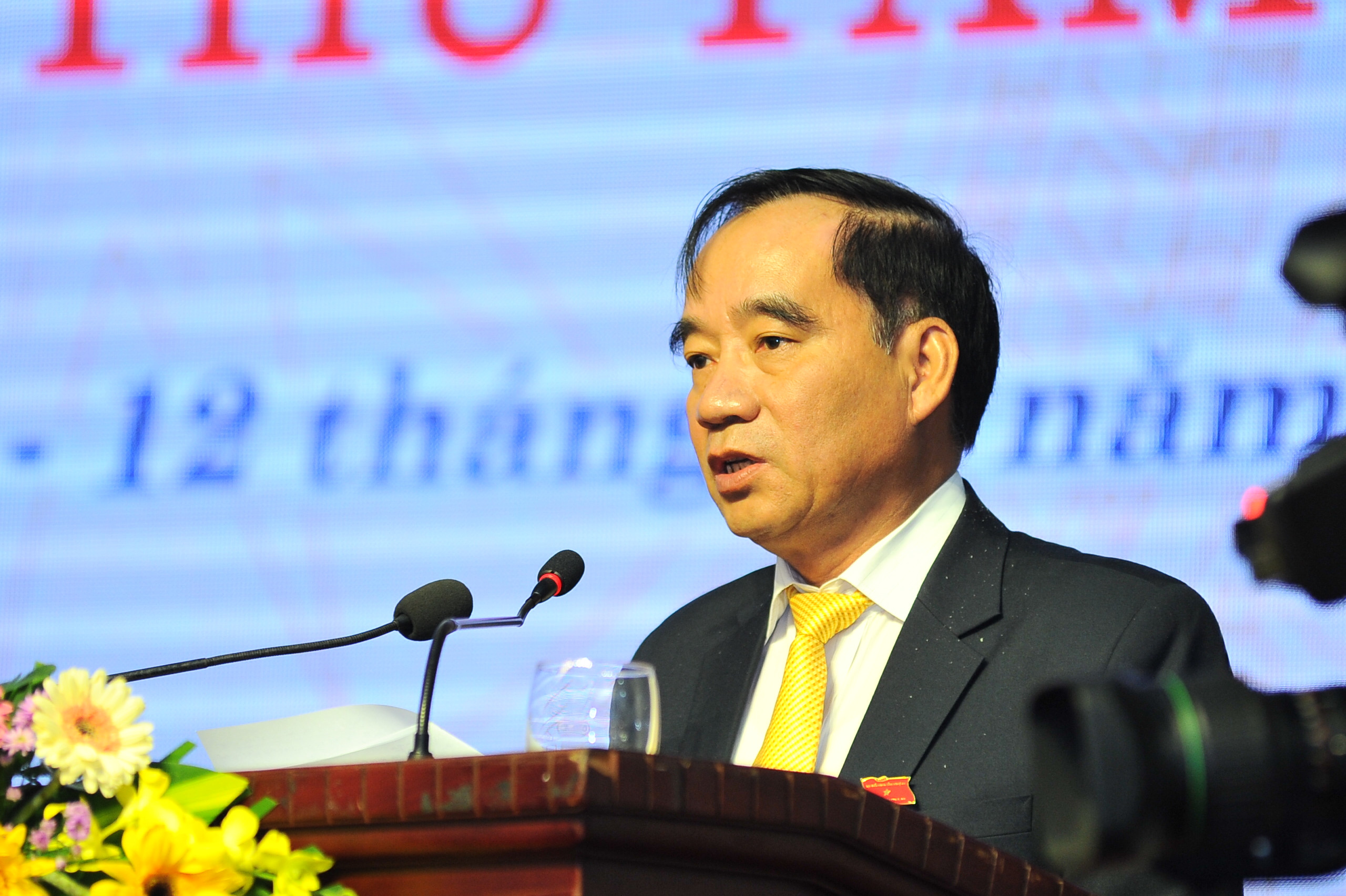 |
| Mr. Hoang Viet Duong - Vice Chairman of the Provincial People's Council chaired the question and answer session on the implementation of ethnic policies in the province. Photo: Thanh Cuong |
Delegate Dinh Thi An Phong (Nghi Loc unit) raised questions about how to implement poverty reduction projects? Why does the situation of falling back into poverty still occur and why does the mentality of not wanting to escape poverty still exist among ethnic minorities? How many villages and hamlets are qualified to escape poverty every year?
Ms. An Phong also mentioned that in 2016 - 2018, the Ethnic Minority Committee Inspectorate discovered violations in investment and construction of works in mountainous areas, and requested that departments and branches clarify the causes and responsibilities of related individuals and groups?
Delegate Hoang Thanh Binh (Vinh City) raised a question about the implementation of the policy of direct support for poor households according to Decision 102/QD-TTg, which has many shortcomings, low and uneven support levels. Mr. Binh asked the delegate to propose specific solutions?
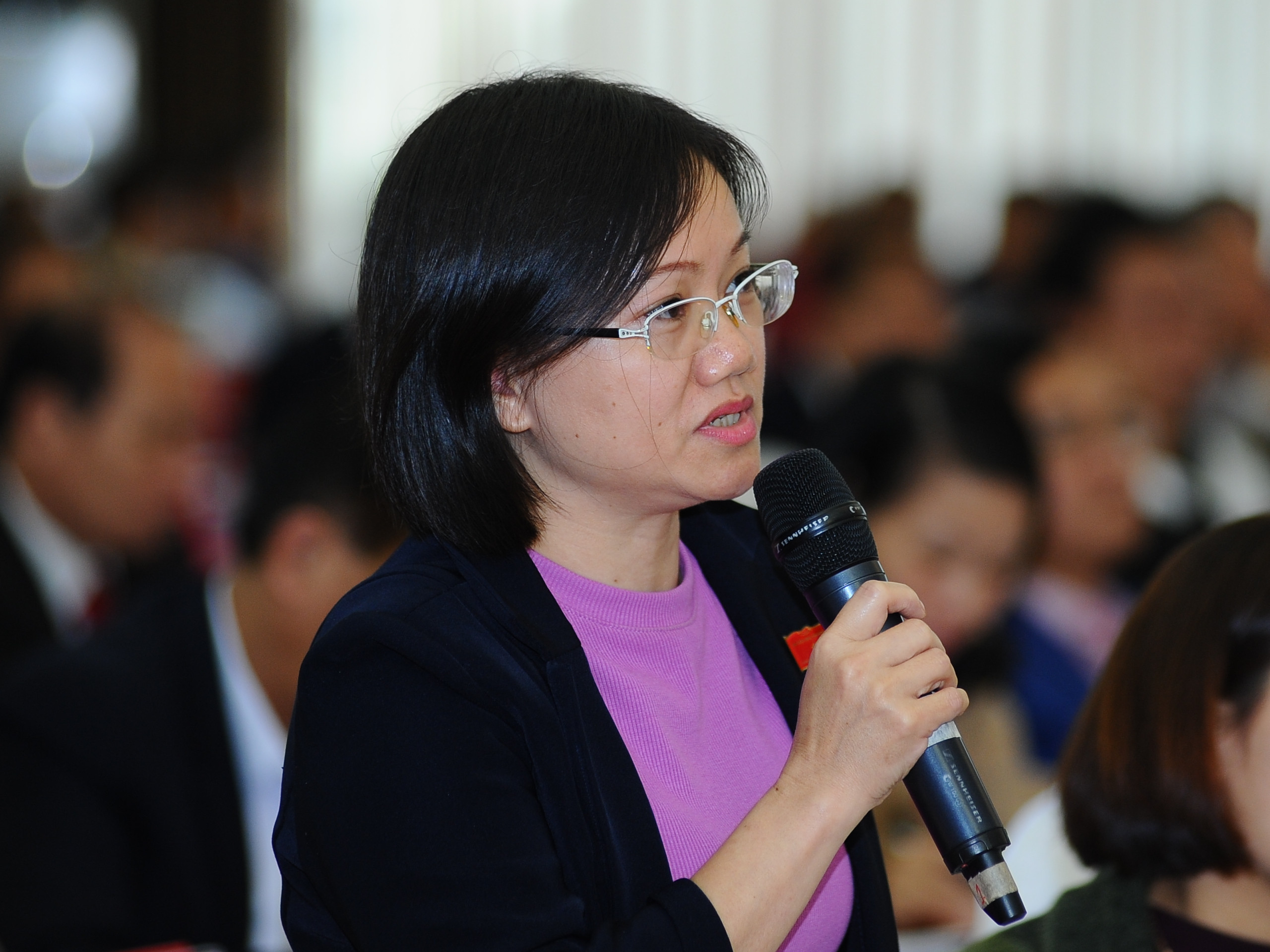 |
| Delegate Thai Thi An Chung asked a question at the question and answer session. Photo: Thanh Cuong |
Also expressing concerns about the above issues, Ms. Luc Thi Lien (Tuong Duong unit) said that the province has had many key investment policies for ethnic minority areas with a large amount of capital, but the number of poor households is still high, there is no outstanding economic model, and requested the province to evaluate specific results and propose more effective implementation directions in the coming time. Ms. Luc Thi Lien also raised concerns about some contents of the implementation of the New Rural Construction Project for the Western region that are still ineffective, requesting a specific explanation.
Delegate Nguyen Huu Vinh (Thanh Chuong unit) also requested to clarify some contents about investment policies for resettlement areas of hydropower projects that have not been thoroughly implemented in Thanh Chuong area.
Lack or absence of funding for implementation
In response to "hot" questions about economic development issues, 4 delegates representing departments, branches and sectors answered and debated quite enthusiastically.
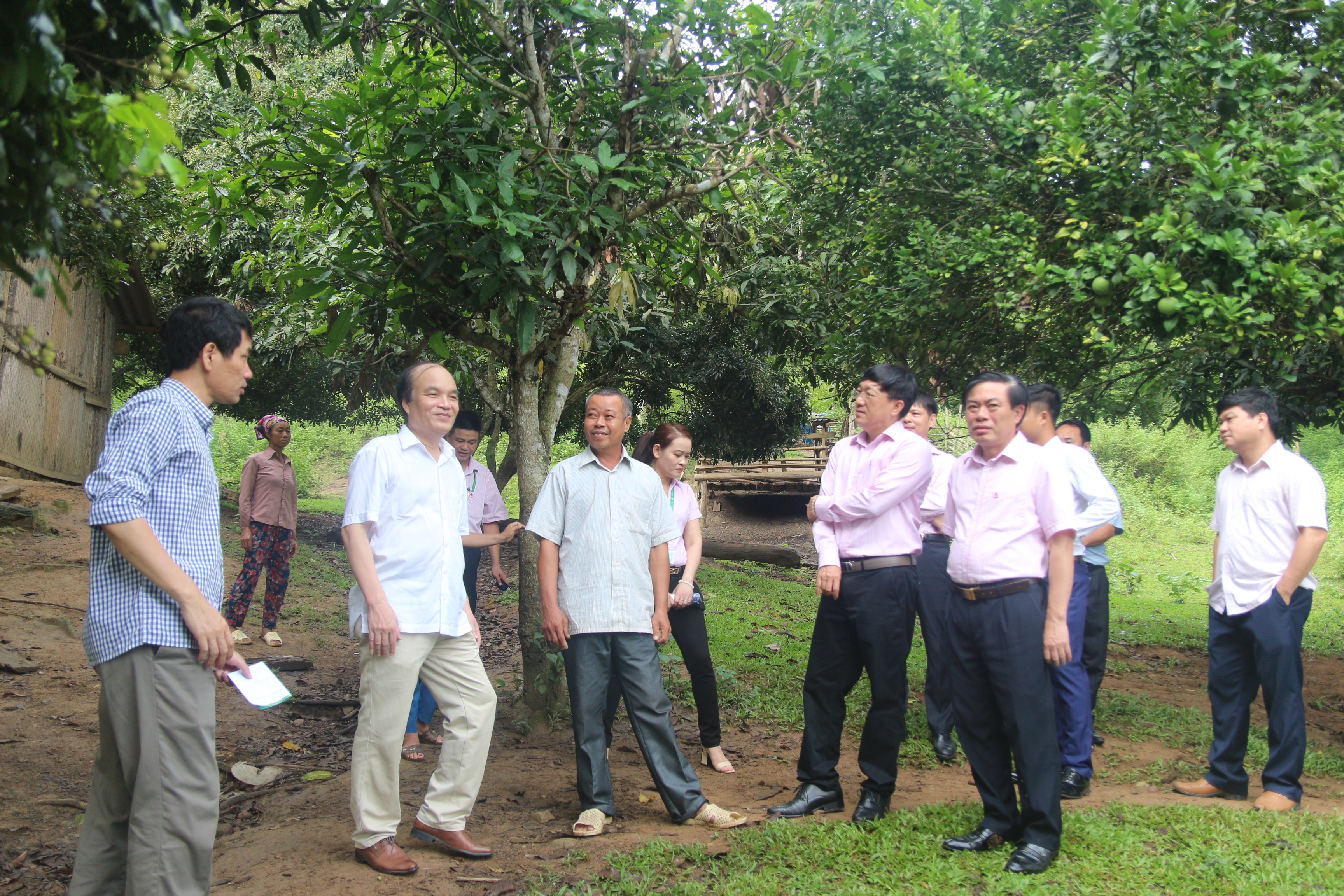 |
| A working delegation from the Vietnam Bank for Social Policies visited economic models in Ky Son district. Photo: Thu Huyen |
Answering questions related to the responsibilities of the Provincial Ethnic Minorities Committee, Mr. Luong Thanh Hai said that ethnic policies are divided into 13 policy groups and involve 17 departments and 11 branches and sectors to direct implementation.
Currently, the whole country has 96 policies expressed through 152 documents that are in effect for implementation. Of which, the ethnic policies that are still in effect in Nghe An province are 70 policies of the Central Government, 12 policies of the province (as of June 30, 2018) and are directly related to 14 departments, branches and sectors that direct implementation.
Mr. Luong Thanh Hai said that the implementation of Decision No. 2085/QD-TTg, Decision No. 1342/QD-TTg, Decision No. 1592/QD-TTg, according to Decision 102/QD-TTg, Decision 102... in economic development investment, hunger eradication, poverty reduction, infrastructure investment in mountainous areas all encountered the biggest difficulty, especially in capital allocation.
"Many policies and investment projects have been implemented, but most of them lack capital and are therefore ineffective. Some policies have only provided 0.05% of capital or have no funding," Mr. Luong Thanh Hai emphasized.
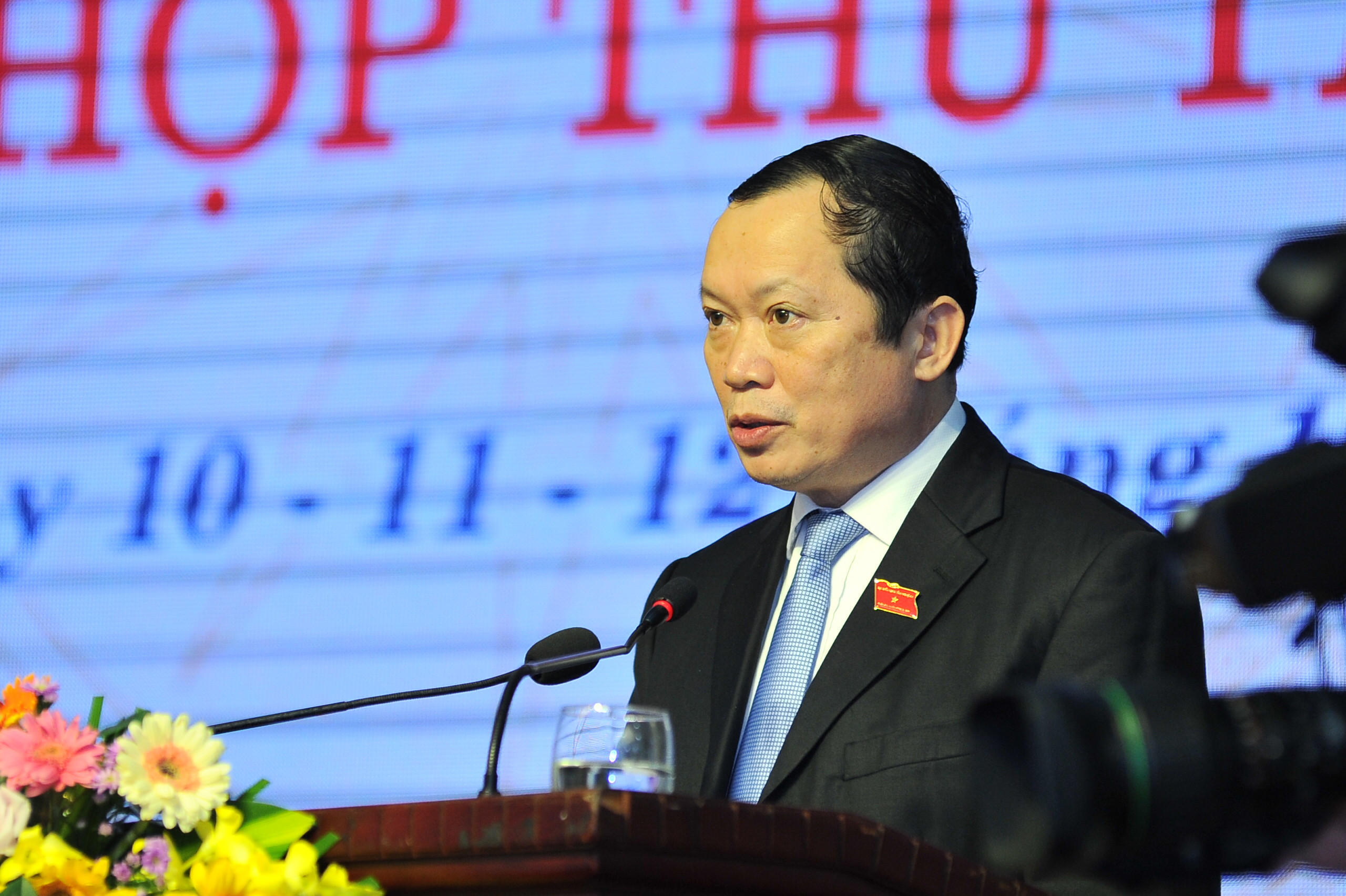 |
| Head of the Provincial Ethnic Minorities Committee Luong Thanh Hai explained the contents at the question and answer session. Photo: Thanh Cuong |
Responding to the opinion of delegate Hoang Thanh Binh - Head of the Provincial Ethnic Committee, he said that due to the regulations of the implementation guidelines, the support for poor households in coastal areas and especially difficult areas with material items such as salt, seedlings, chicken and duck breeds, pesticides, especially the requirement to ensure that over 90% of people have iodized salt.
The Provincial Ethnic Committee has allocated money to the district to implement the project, but it has not been effective, so he suggested that it should be assigned to an independent unit to implement it. Furthermore, because the project has a low investment rate, it cannot provide cows, so the effectiveness is not high.
Responding to Ms. Dinh Thi An Phong's opinion that the Provincial Ethnic Minority Committee Inspectorate and the Provincial Inspectorate had inspected more than 100 projects, collecting and fining more than 500 million VND, Mr. Hai said that the responsibility belonged to the investor, with each project violating an average of about 5 million VND.
Mr. Doan Hong Vu - Director of the Department of Labor, Invalids and Social Affairs, answering the issue of poverty reduction and re-poverty in ethnic minority areas, said that at the end of 2017, there were more than 65,000 poor households in the province, of which the mountainous areas accounted for 7% with 4,700 households.
Mr. Doan Hong Vu said that the concerns of voters and delegates are well-founded, but the scoring to determine poor households according to the new standards does not bind the rate, and currently localities have implemented it quite accurately.
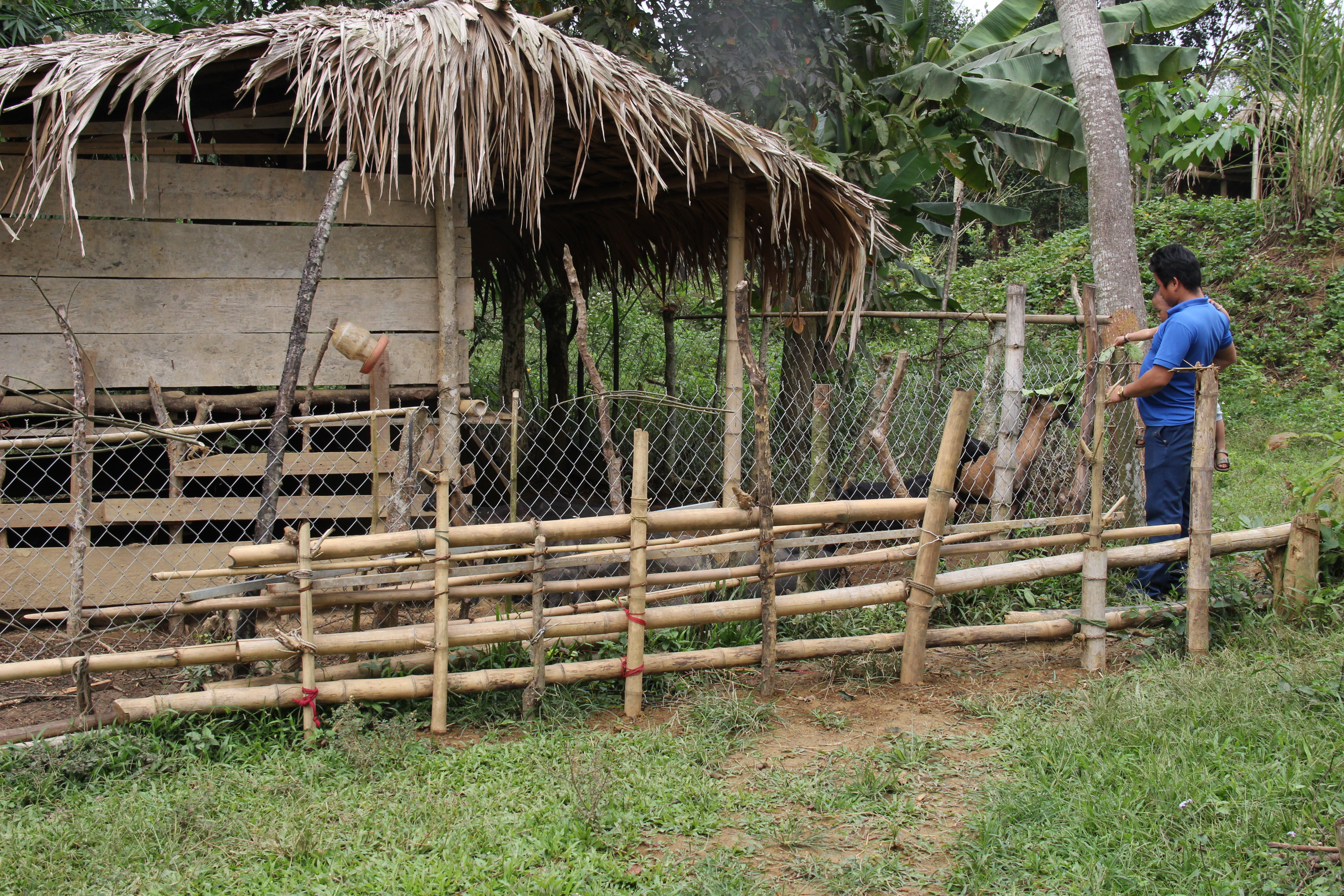 |
| Livestock farming model of Mong 2 villagers, Cam Muon commune, Que Phong. Photo: Hoai Thu |
Also responding to this content, Mr. Hoang Nghia Hieu - Director of the Department of Agriculture and Rural Development clarified some contents in the implementation of Decision 61/QD-TTg on the project of building new rural areas associated with national defense and security protection in border communes.
Mr. Hieu said that with this policy, the Party and the State have shown their concern for mountainous communes by prioritizing investment four times higher than other regions. With the new regulations in 2018, the Department has completed the plan, clearly stating the implementation solutions, in which propaganda will be prioritized, followed by resource investment.
The Department will work with the Ministry of Agriculture and Rural Development to register for capital sources, and will also integrate many other projects to approach and strive to achieve the set goals.
"We will also implement a number of other policies for people in mountainous areas such as land allocation and forest allocation. It is expected that in early 2019, we will allocate 109,609 hectares of land and forest allocation in the province," said Mr. Hoang Nghia Hieu.
Regarding Ms. Luc Thi Lien's question about investment programs and projects for mountainous areas, Mr. Nguyen Van Do - Director of the Department of Planning and Investment said that the Western region is a difficult area with a large area. Therefore, it is difficult to invest in infrastructure. In addition, it is necessary to have a stable population planning before investing in infrastructure. Regarding investment costs for mountainous areas, it must be affirmed that they are quite high, public investment (Decision 2355 has exploited many resources) and investment according to policy. However, the difficulty is that for a long time it has been implemented in a "blind" manner, so it is not effective.
Regarding the sustainable poverty reduction program, Mr. Nguyen Van Do said that the investment in Program 30a alone has doubled, the new rural construction program has more than 200 billion VND and the districts have exploited the investment quite effectively.
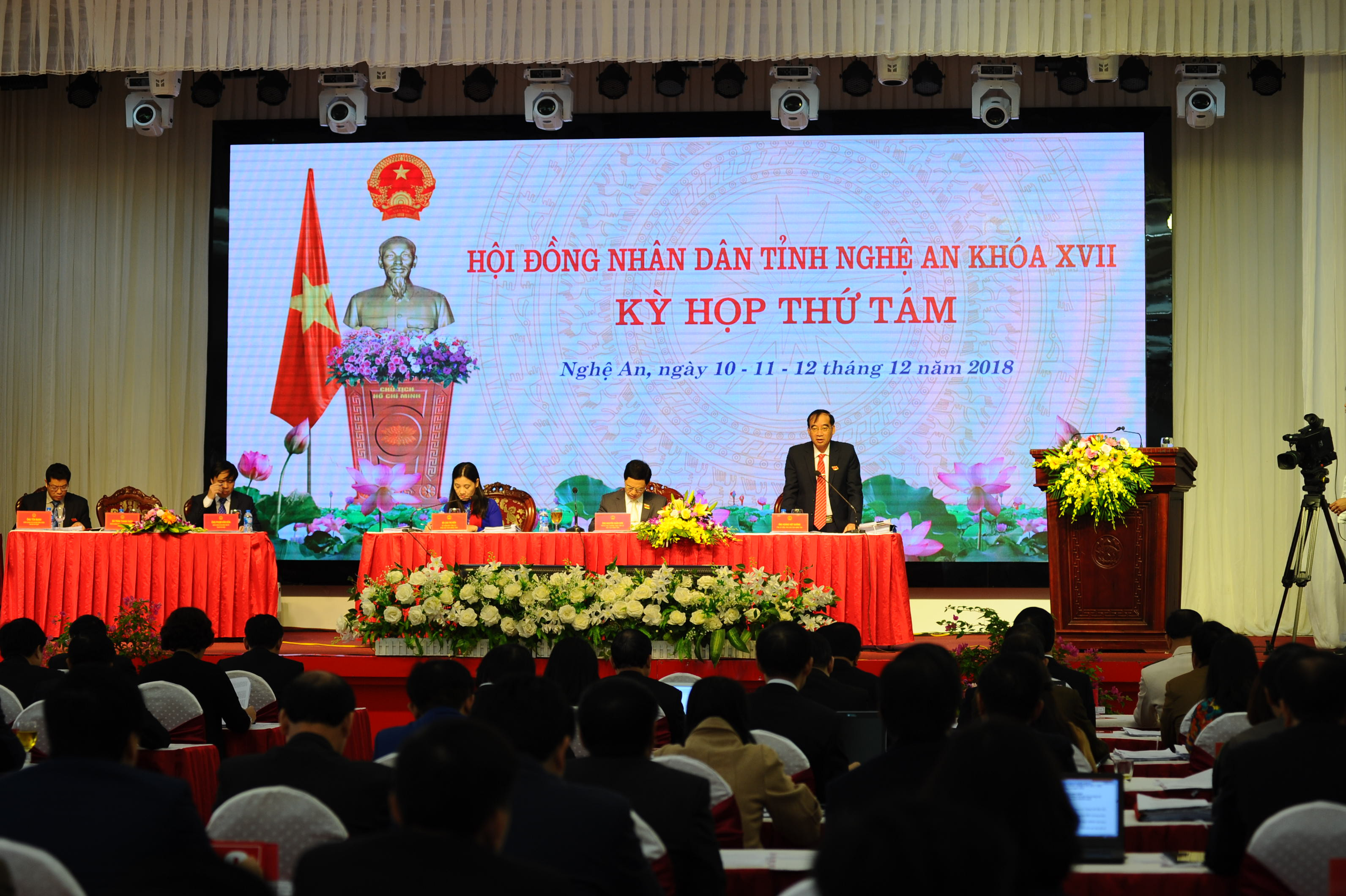 |
| Overview of the meeting. Photo: Mai Hoa |
As for education, there are two investment areas: boarding schools and building a fairly high rate of standard schools. This session will seek opinions on approving policies to attract investment in the Western region with the approach of "putting policies behind businesses", calling on businesses to invest in this region, and if effective, priority policies will be implemented.
Concerns about social security in the Western region
In addition to economic development and poverty reduction, delegates also raised opinions requesting explanations on the issues of incestuous marriage, child marriage, and illegal labor export abroad in mountainous areas, which still leave many consequences.
Delegate Thai Thi An Chung raised questions about the effectiveness of the implementation of the Project to reduce child marriage and consanguineous marriage, which has been implemented since 2015, asking to know to what extent the goals have been achieved, whether this situation has decreased or not, and how? Does the Ethnic Minority Committee know about the situation of women who cross the border to China to sell their children? How does the Head of the Provincial Ethnic Minority Committee see his responsibility and what needs to be done to prevent this situation?
Delegate Luc Thi Lien raised a question about the effectiveness of the implementation of the Policy on Promoting Human Resources Development for Ethnic Minorities. Ms. Lien said that the number of ethnic minority cadres has not met the prescribed ratio or is non-existent, not suitable, the ratio of ethnic minorities in the locality has a tendency to decrease, she asked the province to inform about the reasons and solutions to meet the requirements?
 |
| Director of the Department of Planning and Investment answers questions about the implementation of ethnic policies. Photo: Thanh Cuong |
Delegate Tran Duy Ngoan requested to answer concerns in implementing the urgent policy for ethnic minorities; what is the policy on sending ethnic minority children for training, how many children are trained and what is the future direction?
Regarding these issues, the Head of the Provincial Ethnic Committee has answered quite specifically the contents related to the authority, in which about the implementation of Project 498 to reduce early marriage and incestuous marriage, Mr. Hai said that the budget is more than 5 billion VND but only more than 1 billion has been allocated. Therefore, the committee has chosen the tasks to do first, selected the points to implement (choosing 5 points in 5 communes of 3 districts). The rates will be reduced a lot in the pilot points.
Regarding the number of women selling their children to China, 6 months ago, the Board and the districts surveyed the number of workers going abroad, which showed that the number of women going to work in China was quite large and most of them were illegal. The head of the Provincial Ethnic Committee requested the Provincial People's Committee to assign the Board and a relevant department to investigate and compile statistics on this matter.
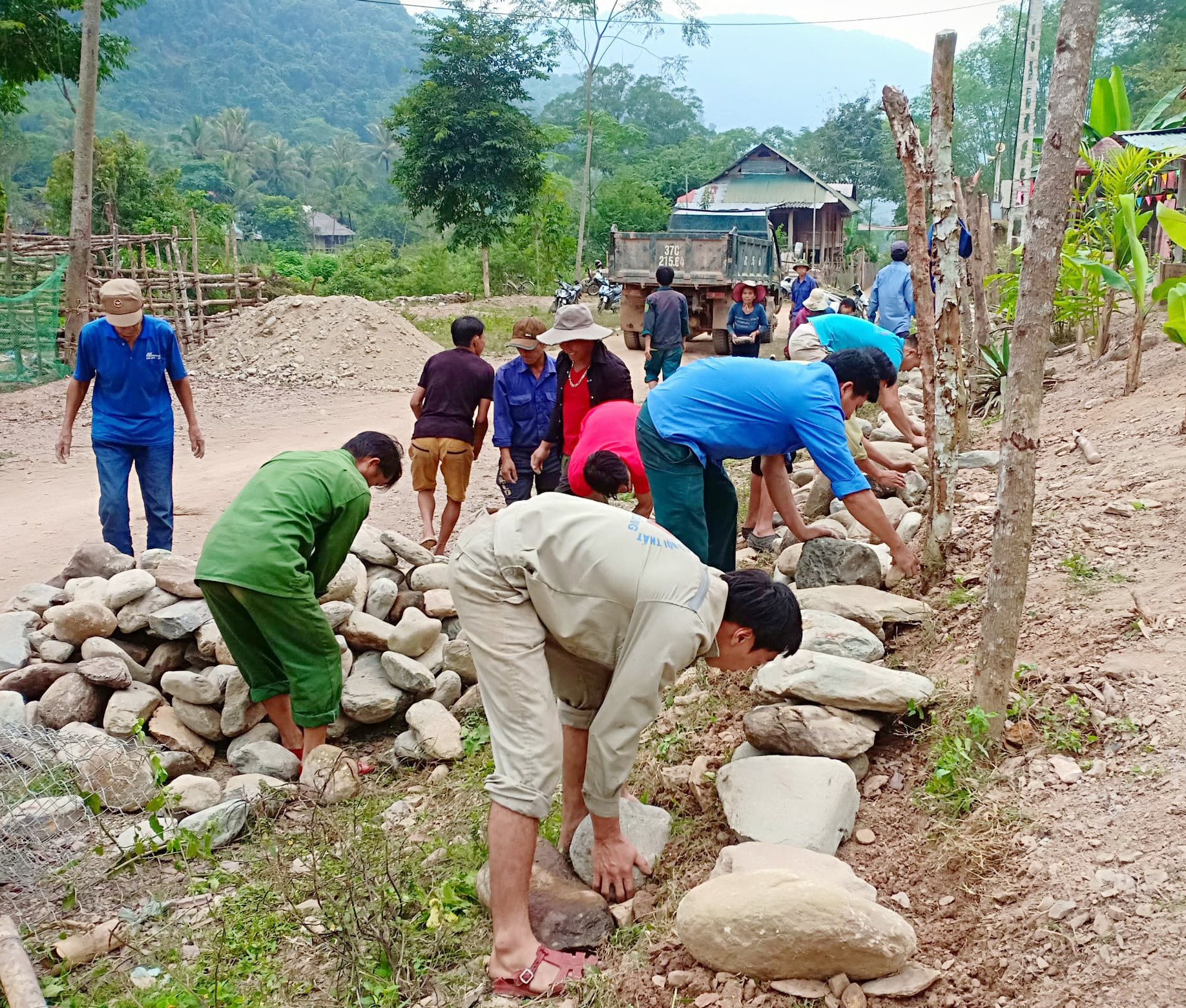 |
| People of Mai Son commune (Tuong Duong) build roads. Photo archive |
Mr. Dau Van Thanh - Director of the Department of Home Affairs participated in answering questions about the implementation of the recruitment regime. From 2005 to now, 884 people have been recruited, including 602 university graduates, 435 intermediate graduates, and 844 graduates, but 570 people have not yet been assigned jobs.
The reason, Mr. Dau Van Thanh said, is that the localities set up initial targets that were not close to reality; the districts set targets higher than the needs, leading to excess people and no place to arrange jobs. Moreover, some students have to study for 5-7 years.
The next reason is due to the policy of streamlining the payroll, so the arrangement for students in general and selected students in particular is limited. Third, according to the regulations on recruiting civil servants and public employees, it is difficult for these people to compete with other subjects.
Regarding the solution, Mr. Thanh said that he will study and prioritize the recruitment of this group. In 2018, the Provincial People's Committee issued an official dispatch requesting units to review the overall staff of civil servants, including the recruitment of ethnic minorities. The department has provided specific instructions for localities to implement.
Director of the Department of Finance Nguyen Xuan Hai also explained some additional contents about budget allocation for ethnic minorities; other funding sources for programs and projects.
Concluding the questioning on the implementation of ethnic policies, Mr. Hoang Viet Duong - Vice Chairman of the Provincial People's Council acknowledged and accepted the opinions expressed and discussed; commented on the quality of the questioning and requested relevant departments, branches and sectors to accept the opinions, supplement and answer more specific contents.
| Delegates questioned and answered questions about the implementation of ethnic policies. Video: Duc Anh |

